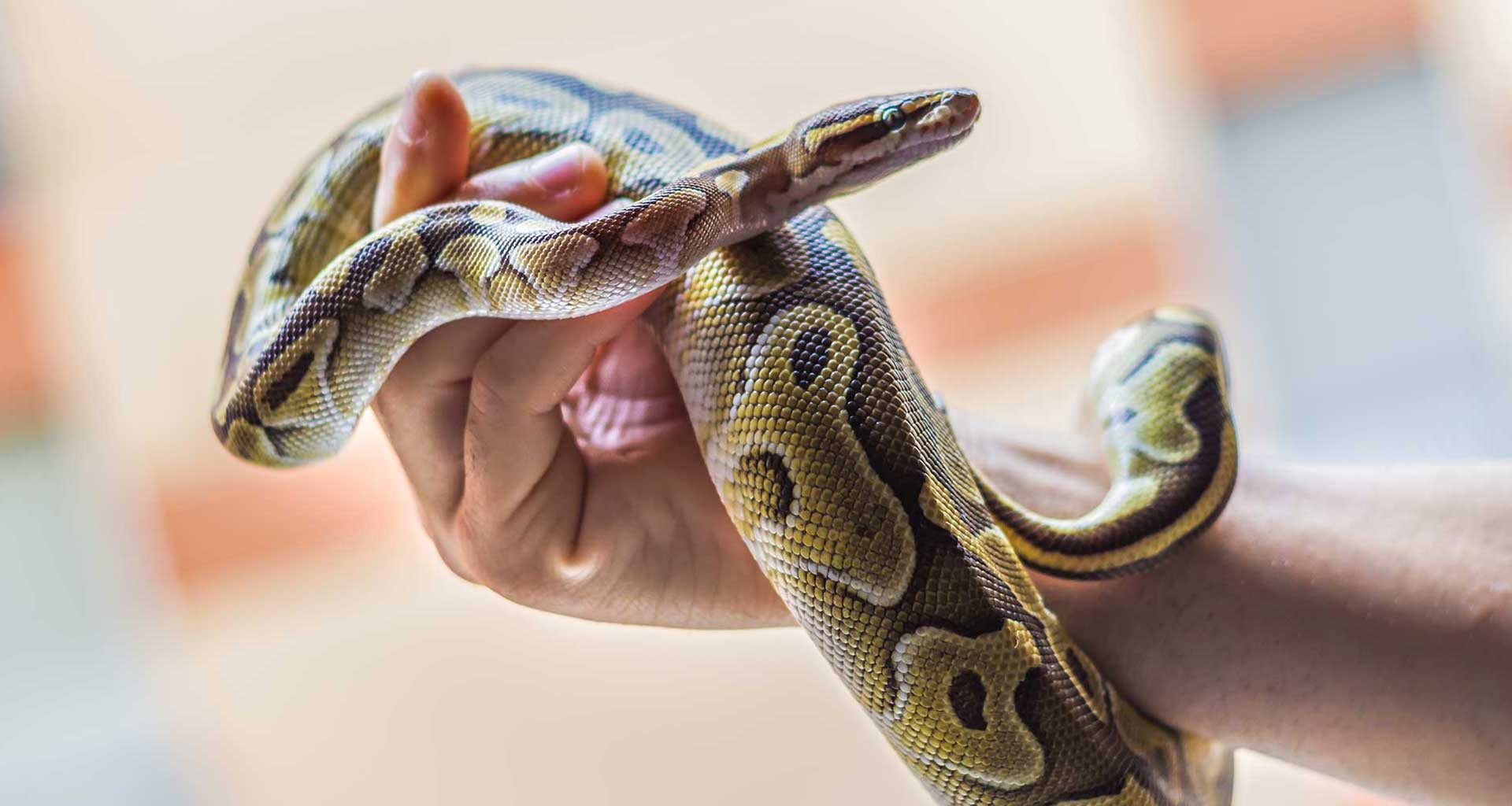Armed with curiosity and natural hunting instincts it is not uncommon for our favourite four legged friends to cross paths with a snake. Where the weather is relatively warm all year round, pets can be bitten by snakes at any time of year.
Australia has a large number of venomous snakes. We also see many pets who are bitten by whip snakes which can cause a nasty reaction at the site of the bite but are not fatal. Pythons, while not venomous, can be a danger to small pets such as cats, puppies, small dogs and guinea pigs as they can strangulate them (or even attempt to eat them).
First Aid
If you suspect your pet has been bitten by a snake you should immobilise your pet and try to keep him/her as quiet as possible. It is vital that you take your pet to a veterinarian as quickly as possible. The sooner your pet is treated, the better their chances of survival.
Do not put yourself or others at risk by attempting to capture the snake. If you find what appears to be a dead snake, still use extreme caution when approaching it and use an implement such as a spade to pick it up and place it in a sealed container (preferably a clear rigid container so the snake can be viewed through the container).
Individual species of snake can vary in colour and pattern considerably and are all but impossible to definitively identify other than by experienced snake handlers.
Signs of Snake bite
Several factors will determine what sort of reaction your pet has to a snake bite. The type of snake (some species of snake are more venomous than others), the amount of venom injected (depends of the size and maturity of the snake) and the site of the snake bite are all contributing factors.
Dogs and cats are most often bitten around the head and limbs. Usually the closer the bite is to the heart the quicker the venom will be absorbed into the pet’s system and distributed around the body.
Snake venom carries a large range of toxins that damage tissues and impair many of the body’s vital functions; they attack the nervous system and interfere with the body’s clotting mechanisms.
The signs of venomous snake bite are varied. They may show some or all of the following signs:
- Sudden weakness followed by collapse.
- Shaking or twitching of the muscles.
- Vomiting.
- Dilated pupils not responsive to light.
- Blood in the urine.
- Paralysis including paralysis of the respiratory muscles.
It is important to note that sometimes a pet will initially collapse following a bite and will then appear to recover. This is actually a sign of a lethal dose of venom so you need to get your pet to the vet immediately. The apparent recovery is soon followed by deterioration in signs.
Veterinary Treatment
Firstly your veterinarian will examine your pet, assess the clinical sign they are showing and determine the best course of action. Further diagnostic tests may be required to determine if your pet has actually been bitten and sometimes it is useful to identify the type of snake via a snake bite detection kit.
Veterinary treatment varies with each individual case, how severe the symptoms are and how rapidly the symptoms progress. Treatment usually consists of intravenous fluids and the administration of antivenom to neutralise the snake venom in the pet’s body. Some patients require multiple vials of antivenom. It is important to note that any venom that has already bound to the nerves in the body is not neutralised by the antivenom, the antivenom only works on the venom that is still circulating in the blood. Therefore it is important that antivenom is given early in the course of treatment.
Other supportive care may also be required – including oxygen supplementation and even breathing for the pet if they are not breathing well on their own. This needs to continue until the circulating antivenom has been neutralised and any bound venom has worn off.
If your pet is given antivenene for a snakebite, it is only being used to neutralise the snake venom in your pet’s system at that time. It does not protect your pet in future from further envenomation from a snake. Antivenene is not a vaccination or a preventative medication.
Recovery
Approximately 80% of pets survive snake bite if treated quickly. The survival rate is much lower however for pets that are left untreated, and death can occur.
Recovery from a snake bite usually takes 24 to 48 hours if the pet receives prompt veterinary attention and the snake bite is not severe. However, some pets will take substantially longer to make a full recovery due to tissue damage to internal organs and will require intensive and prolonged nursing care.
Antivenom
Antivenom is produced by gradually immunizing horses to the venom of a species of snake. The horse’s blood is then collected and the serum is separated and purified to make antivenom, containing specific antibodies to the toxins in the snake venom.
Snake antivenoms are expensive to produce and have limited shelf life; these factors are reflected in their high costs.
Precautions
Dogs are inquisitive by nature. When exercising them in bushland (particularly near water) or near beach dunes during the warmer months of the year, use a leash.
Cats are naturally born to hunt and stalk anything that moves. This unfortunately can lead to an unpleasant end, if he/she encounters a snake. If you live in the outer suburbs or semi-rural areas, keep your backyard clear of long grass, and remove any piles of rubbish. This will help to reduce the number of hiding spots for snakes to reside in. The best way of protecting your cat is to keep it inside, although very occasionally very small snakes may make their way inside and even the smallest of venomous snakes can still be lethal.
What to do if you find a snake
Contact a snake removal service or the wildlife helpline.
Remember… if your pet is bitten DO NOT try to catch or kill the snake, all Australian snakes are protected and you may expose yourself to unnecessary danger.


